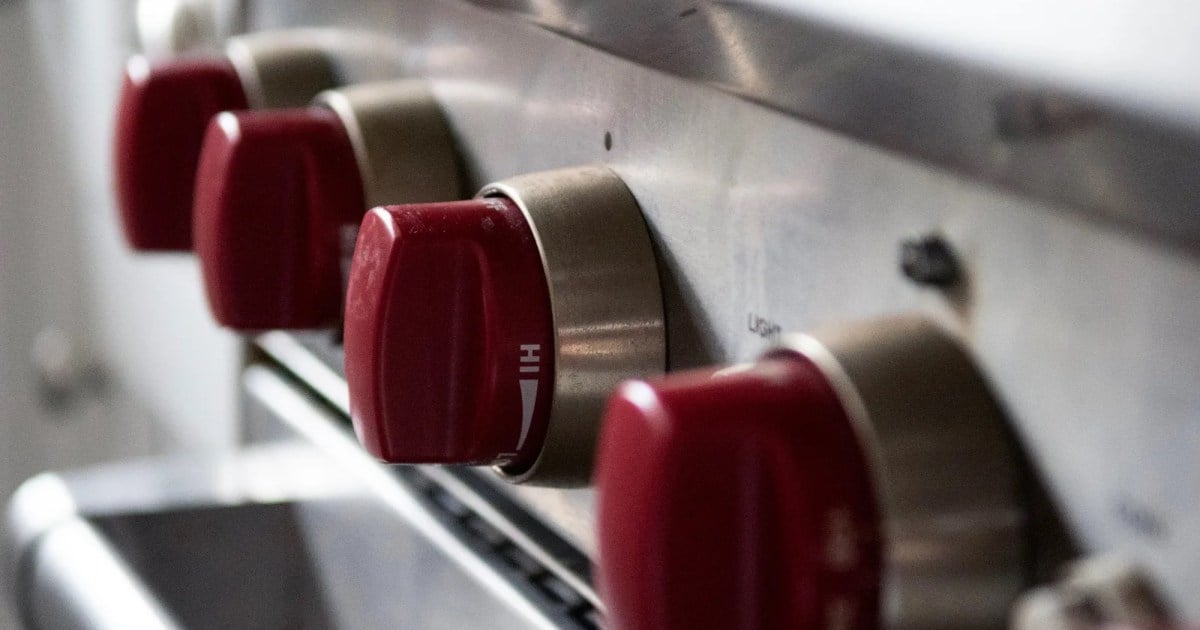245
Highlights: A study this summer found that using a single gas stove burner on
high can raise levels of cancer-causing benzene above what’s been observed from
secondhand smoke. A new investigation by NPR and the Climate Investigations
Center found that the gas industry tried to downplay the health risks of gas
stoves for decades, turning to many of the same public-relations tactics the
tobacco industry used to cover up the risks of smoking. Gas utilities even hired
some of the same PR firms and scientists that Big Tobacco did. Earlier this
year, an investigation from DeSmog showed that the industry understood the
hazards of gas appliances as far back as the 1970s and concealed what they knew
from the public. It’s a strategy that goes back as far back as 1972, according
to the most recent investigation. That year, the gas industry got advice from
Richard Darrow, who helped manufacture controversy around the health effects of
smoking as the lead for tobacco accounts at the public relations firm Hill +
Knowlton. At an American Gas Association conference, Darrow told utilities they
needed to respond to claims that gas appliances were polluting homes and shape
the narrative around the issue before critics got the chance. Scientists were
starting to discover that exposure to nitrogen dioxide—a pollutant emitted by
gas stoves—was linked to respiratory illnesses. So Darrow advised utilities to
“mount the massive, consistent, long-range public relations programs necessary
to cope with the problems.” These studies didn’t just confuse the public, but
also the federal government. When the Environmental Protection Agency assessed
the health effects of nitrogen dioxide pollution in 1982, its review included
five studies finding no evidence of problems—four of which were funded by the
gas industry, the Climate Investigations Center recently uncovered. Karen
Harbert, the American Gas Association’s CEO, acknowledged that the gas industry
has “collaborated” with researchers to “inform and educate regulators about the
safety of gas cooking appliances.” Harbert claimed that the available science
“does not provide sufficient or consistent evidence demonstrating chronic health
hazards from natural gas ranges”—a line that should sound familiar by now.
omg, is this for real? weird how recent conspiracy rumbling about gvmnt taking away gas stoves may have been covering for a real conspiracy. First I’ve read about benzene in stove fumes. Like cooking w/gas



I had gas stoves most of my life. Several years back I had an apt with a nice flat top electric and I liked it. Fast forward a couple years and my current place has a gas stove again. I hate it now and I miss the electric.
It was reliable. It didn’t smell or leave combustion byproducts in the air. I don’t have to worry about making the house explode if a burner is bumped on.
The thing I notice the most is it’s wasteful. On the electric the handles of my pots were never too hot to touch. Gas stove, so much heat is lost around the pot. The handles are always hot and the above range microwave handle gets hot too. (I am using the appropriate sized burner for the pot size.)
This article was posted on another community yesterday. Most of the comments were about how awesome gas is and how crappy electric is.
In my adult life I’d always had electric stoves, and they were fine. Two years ago I bought a house with a gas stove and I was so excited because I love cooking and it’s supposed to be the best.
I fucking hated it. There’s so many cons to gas stoves that people never talk about and I don’t get it.
The waste heat is insane. Your pan and pot handles get hot. You can’t leave utensils in the pot or pan, they will burn. It directly heats and humidifies the air in your kitchen. It’s finicky on low heat and you can sometimes have a burner go out.
And these are just ways that gas sucks to use. I’m not even talking about health impacts.
We switched to induction and it’s definitely the best. But I’d rather have resistive electric than gas.
One benefit of electric and induction that’s a bit subtler: you can smell what you’re cooking better. With gas, there are all these hot gasses coming up around your pan that make smelling things hard.
And how annoying they are to clean. In China, I had a gas stove and it seemed like it left residue on everything. Getting into the nooks and crannies to scour it was also annoying, and one time I accidentally broke one of the burner heads.
My induction stove at home now is just a flat surface. It cooks quick enough, has no fuss, I don’t have to worry about carcinogenic fumes, and I can just quickly wipe it down when I’m done if any shit gets on it.
I like everything about electric cook tops with the exception of using a wok.
The only time I ever enjoyed cooking with gas was when I was doing it professionally. They always seemed sketchy to me in a home kitchen where you don’t have a ventilation system than can fully cycle the air in less than a minute. My only complaint with my current glass-top electric is it’s only got 1 big burner.
It’s so weird because I’ve hated every electric stove I used and loved every gas one.
One big reason is that when a gas burner is off it is no longer producing any heat. The number of times I’ve had a boil over or burned food because the heat doesn’t just turn off immediately makes me hate electric. And that’s just one reason.
So take it off the burner.
And then it’s getting cold while I wait for the burner to cool down. Oh, and now the burner is a burn hazard, and whatever boiled over is searing itself to the burners.
I disagree. The burner and grate retain a bunch of heat when you turn the gas off. Maybe not as much as the electric element but it’s still a consideration.
Thanks for your response, I appreciate the dialog and wish people didn’t downvote you for having an opinion.
There’s going to be latent heat with any burner, even induction. But resistive electric is the absolute worst.
Resistive electric just requires a different technique. If you adapt to it, they work just fine.
deleted by creator
The amount of black burned on food stains around my burner will never come off fully. Barkeeps friend has finally failed me.
I’ve done both and I prefer cleaning the gas range. Those glass tops are never as easy to clean as they claim, and with sealed burners it’s just a matter of mopping it up with towels.
Electric glass tops can be hard to clean at times. I’d still prefer it over gas in general.
Induction glass tops are sooooooo easy to clean. Nothing gets burned on because the heat is in the pan, not in or under the glass top.
Glass tops definitely easier to clean than non-sealed burners, but I always end up with charred rings over the burners that have been polished into the glass and will never come out.
With sealed gas burners I just pour some boiling water on the cooktop, wait for it to cool, mop it up with a towel, and scrub the nasty stuff off with a scrubber.
Inductions are crazy easy to clean, though.
deleted by creator
I don’t think you know what I’m talking about. With sealed burners there is no way for anything to get under them. They’re totally water tight, and there’s no way to lift them up to get underneath them.
deleted by creator
I have sealed burners in the stove in my house, so I’m sure I know what I’m talking about. The picture at the top of this page is a good example
The burner on the right side is a sealed burner, which is what I’m talking about, and the one on the left is a special kind of unsealed burner, but if you scroll down you’ll see the traditional sort of unsealed burner you’re thinking of.
deleted by creator
Induction stoves are on another level. You could sort of argue about open flame vs glass top electric… Though even then, flame had big downsides.
But induction is just superior. Almost no energy loss. No heating the air from the element. No burns from the element. Almost instant response from temp changes.
I also am back on a propane stove and am working on replacing it.
Induction stoves can heat much faster than the hottest setting on many gas stoves which gives many the impression that electric stoves are “hard to control”. But then the resistive element ones have the opposite problem where the power is somewhat lower than gas. Most people don’t differentiate the type of electric stove they’re using, and just project a single bad experience or two to all electric stoves.
This conversation reminds me of my grandfather. I wonder what he would think of this subject and the addition of induction for cooking.
Cooking on wood was his choice no matter the house modern or rustic, he would install a wood cookstove. He grew up logging and working in remote logging camps. There was no gas or electricity to choose from then.
He use to cook up great breakfasts every day. He hated electric stoves as he said they would only heat up the middle of his large frying pans. There was one that exploded on him. The pans were quite large, dwarfing the large element on a electric stove.
Thinking back it would be odd seeing a woodstove next to a unused electric stove. Anyways Swedish Crepes were his thing. The woodstove was a even heat for him he said. The best heat you could ever get in his mind. My grandmother use to also bake in this stove. He was good at controlling the heat for her.
When they retired to his cabin he built, his wood cookstove also had a water jacket for hot water tank. (there was no power grid). That stove was running from 430am to 6or 7pm at night every day. Then there was the regular woodstove to heat the main area of the cabin. It was only in his last years that he had to accept a propane cookstove in the kitchen for his new wife to cook on in the summer as the days were getting pretty hot to run a woodstove. She also wanted hot water at all times so a propane hot water tank came in the deal. He use to cook a little on the propane stove but wood was always his first choice.
I like the high-speed reactivity of gas (it gets hot enough to cook almost immediately, but I can live with electric and I like the safety of induction (which was nice when young kids were about).
However I grew up in Los Angeles smog which messed up my lungs. So I may be high risk.
I’m too poor to replace stoves or choose homes based on a philosophy, though.
Yeah I’m in an apartment. I get what I get.
When those issues with overheated pots happen on a gas stove, it is because you have turned up the flame too high for the size of the pot.
Using that logic I’d have to keep all my burners on low all the time and spend hours getting water to boil.